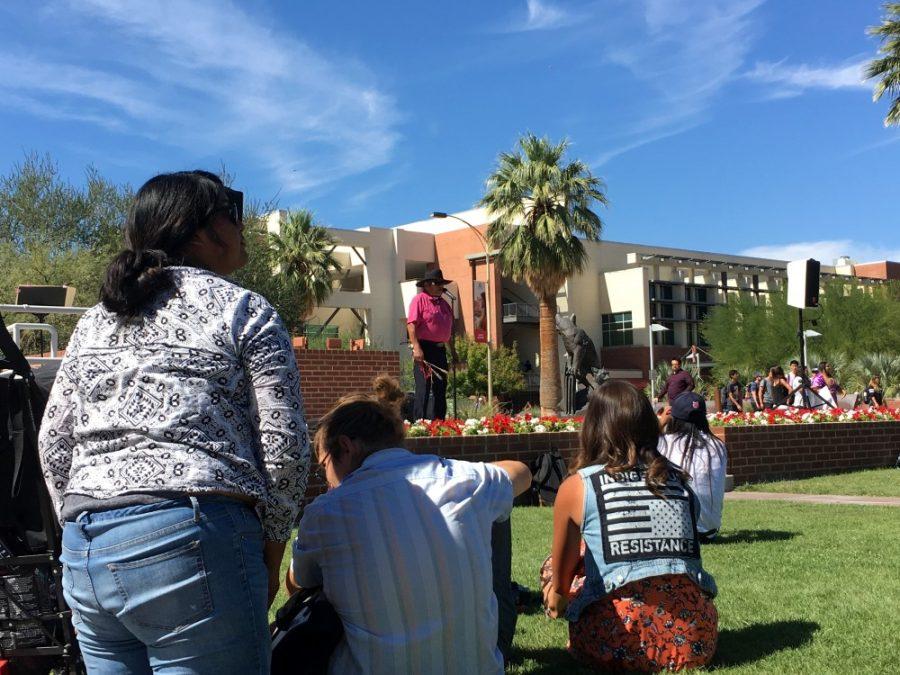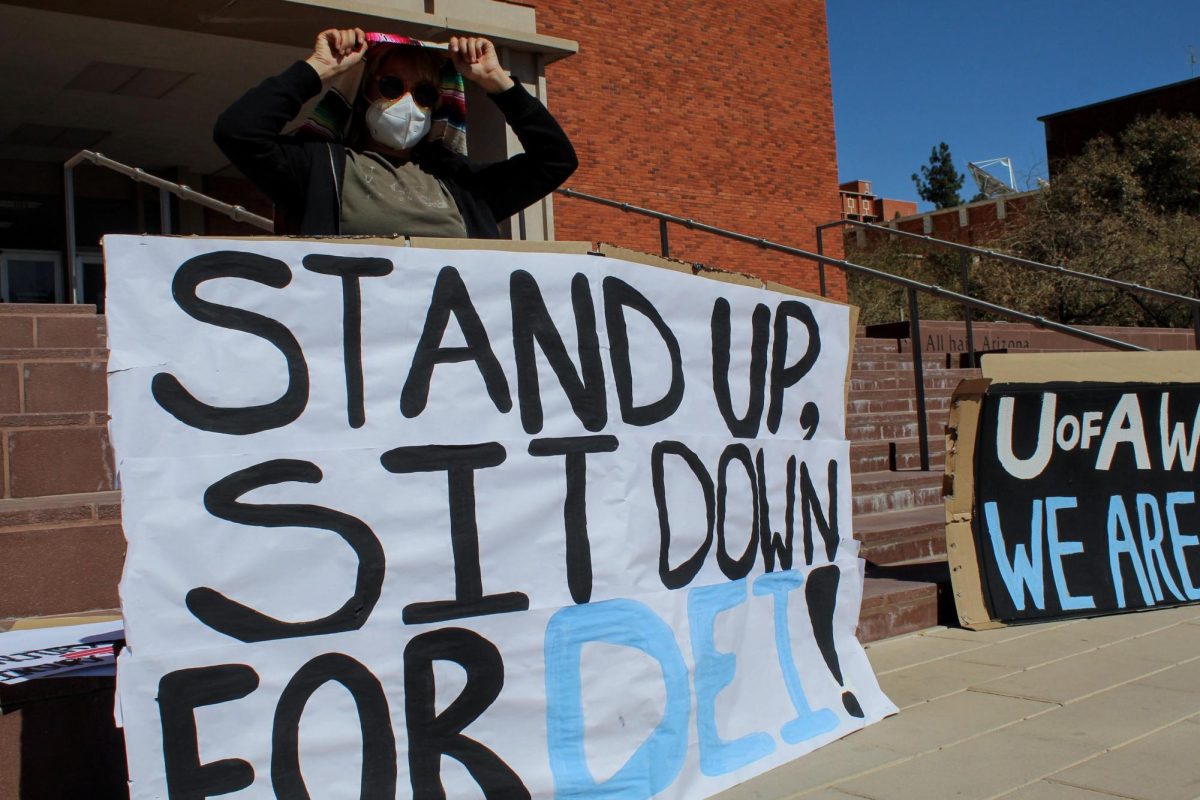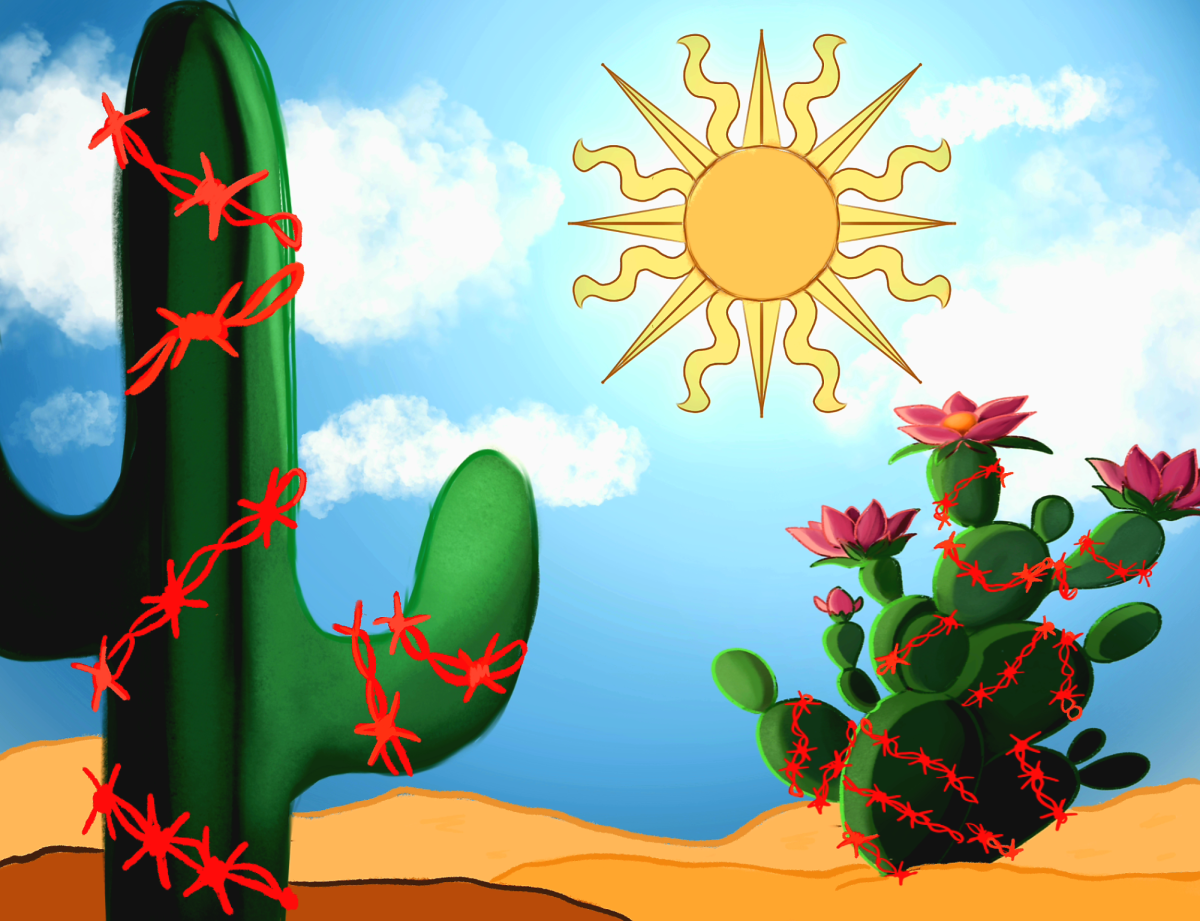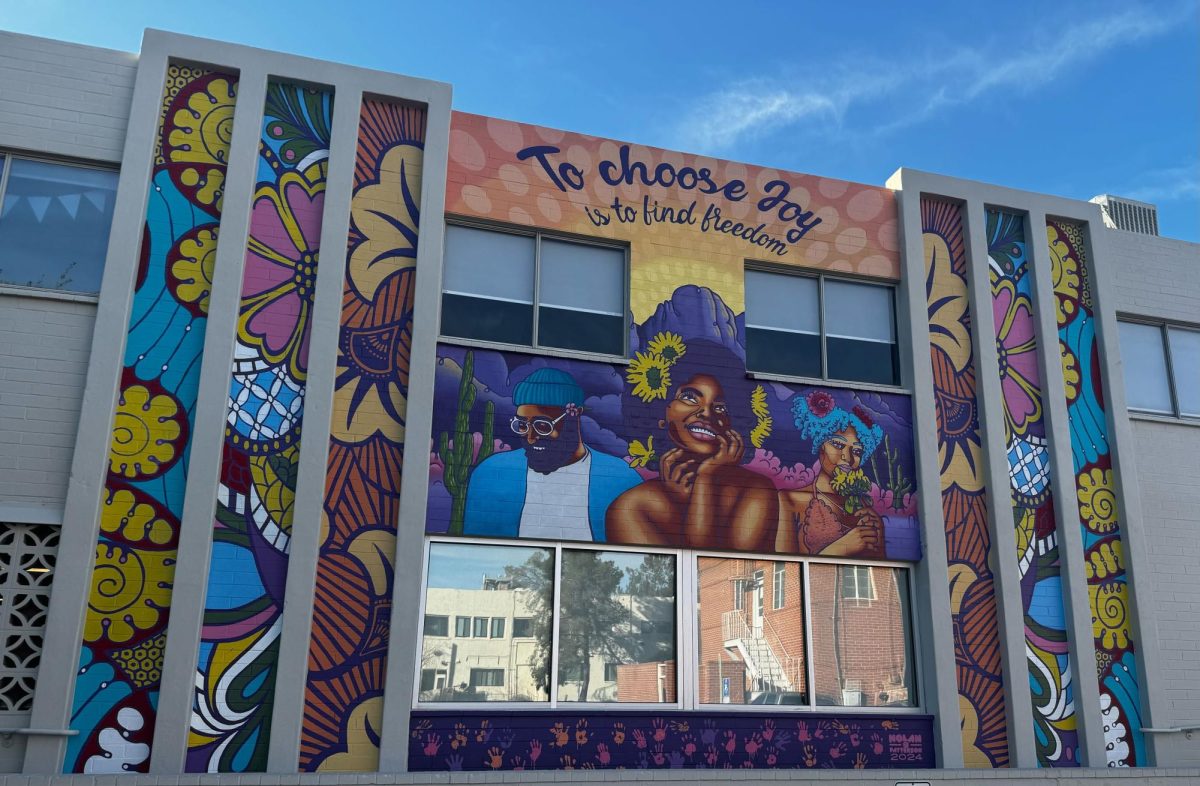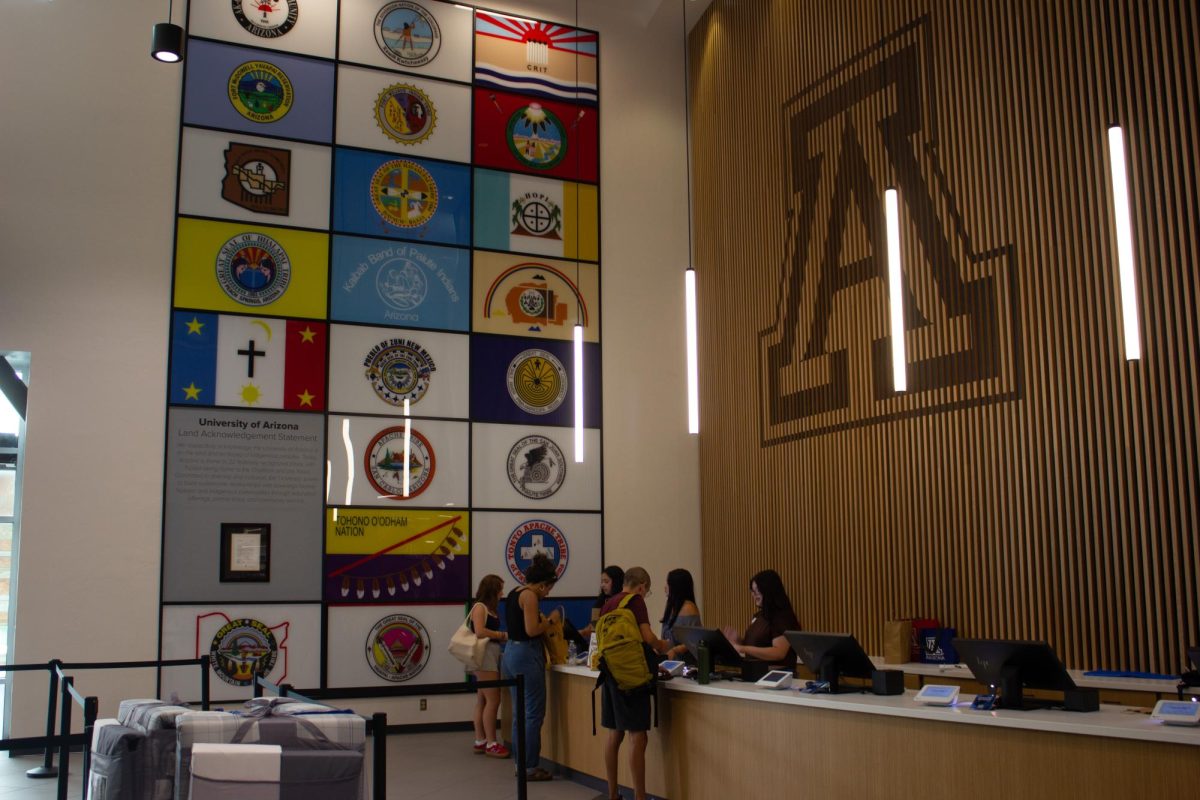Grandparents, toddlers, students and alumni gathered on the UA Mall at noon Monday, Oct. 10, a day federally recognized as Columbus Day. Yet this gathering was not to celebrate Christopher Columbus’ dubious discovery of the “New World,” but rather to push for the recognition of Indigenous Peoples Day.
Gabriela Bernadett, a member of the Tohono O’odham Nation and a 2015 UA graduate with a master’s degree in American Indian studies, said that a recognized day is all about visibility and acknowledgement, especially in a time where race, privilege and power are prominent topics.
“We’re trying to make people think differently about the story they were told about the Western Hemisphere,” Bernadett said. “Look at it from a Native perspective.”
RELATED: UA professor wins award for commitment to Native American communities
Bernadett said one of the biggest problems Native Americans face is that they’re invisible not only in the eyes of the government, but to the general public, which is why it was imperative to hold the event on campus.
“At universities, Native Americans really struggle to find acceptance, to be retained, to graduate,” Bernadett said. “The event shows that UA accepts and affirms Native students.”
Bernadett remembers learning the story of Columbus as a child in school, and said that it was a strange experience.
“I thought it was odd,” Bernadett said. “It was weird to hear that we were ‘discovered.’ You don’t think of yourself that way.”
Larea Lewis, a Ph.D. student in American Indian studies and member of the Agua Caliente Band of Cahuilla Indians from Palm Springs, California had a similar experience, but didn’t learn the full truth until college.
“As a kid you learn about Columbus, but as you get older you learn about the atrocities, and it’s a very painful memory for many indigenous people,” Lewis said.
Lewis thinks it’s still important for children to learn about Columbus, as long as they understand the entirety of what happened, including how Columbus sent Native American people back to Spain as gifts for the Queen.
“When you actually read Christopher Columbus’ journal … he made it sound like it was all okay,” Lewis said.
Nellie Jo David, a Native American speaker from Ajo, described Columbus as “a mass murderer, a rapist, a pillager” when she gave a brief history of the movement for Indigenous Peoples Day, praising Native peoples’ “history of resilience” and touching on the deep feelings that accompany this day.
“It’s been a day of celebration for them but a day of mourning for indigenous people,” David said. “Ever since that day, people—indigenous people—all over the place have been subject to genocide.”
Joe Begay, a grandfather in the Navajo Nation, who performed a traditional powwow ceremony, recounted some of that abuse. As a child, he was sent from his reservation to a boarding school in Breckenridge, Utah where he ended up getting arrested for fighting to speak his language.
“You’re not allowed to speak your language, [practice] your culture, your religion,” Begay told to the crowd. “That’s the first thing—they cut my hair off. I almost cried. It was part of my strength, to me.”
From these abuses among others, the idea to reclaim that day was born. David said that the idea started with the 1974 International Treaty Council, founded at Standing Rock in South Dakota. In 1992, Berkeley, California was the first city to actually designate the day. From there, David said it “spread like wildfire.”
RELATED: UA stands in solidarity with Standing Rock
Cities including Phoenix, Seattle, Minneapolis and Denver celebrate Indigenous Peoples Day, as do many individual tribes.
Bernadett said Indigenous Peoples’ Day is “getting around to the mainstream, city by city, tribe by tribe.”
Now, there’s a push for UA to recognize Indigenous Peoples Day. David said this was “to make sure that our children and everyone in the future is acknowledged.”
One speaker, Ashleigh Thompson, an anthropology Ph.D. student and member of the Michigan Red Lake Band of Ojibwe, powerfully captured that desire for acknowledgment in a spoken word poem about incarceration titled “Daddy.”
“Let the U.S. government off free, for all the lies they told me?” Thompson said.
Follow Marissa on Twitter.



